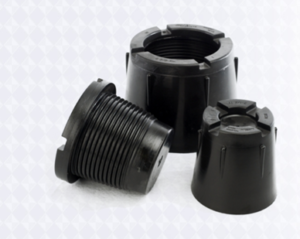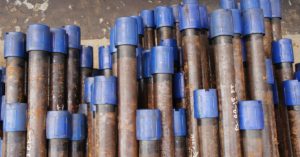Most consumers aren’t aware of the vital role of lifting bails on oilfields and drilling sites. However, if you’re part of an oil and gas corporation, you understand that protecting assets is a vital component of operating a successful business. This includes the safe removal, transportation, and storage of equipment. Lifting bails provide a stress-free method of protecting API threads for your oil and gas industry operations. Without them, operations would be extremely difficult and time-consuming.
Lifting Bail Applications
Heavy-duty bails are also called “lifting caps” and can be used as lifting tools in the natural gas and petroleum industry. Additionally, crew workers and engineers can utilize them in drilling fields and for geographical exploration.
Lifting bails are applied for lifting the following heavy equipment:
- Tool joints
- Stabilizers
- Drill bits
- Drill pipes
- Subs
- Drill collars
The bails are also used to protect threads against damage while the items are being moved. The threads are protected during loading, transportation of the equipment to the new site, offloading from the truck, as well as during storage. Due to their unique design with a durable handle on one end and screw features on the other, bails also help to form a link between the cable and the drilling tools.
Benefits
Bails safeguard threads during drilling operations at an oilfield site, decreasing the need and expense of replacing thread-damaged equipment. In addition, the bails ease the process of offloading drilling tools or removing them from storage. They are also remarkable at lifting equipment off the ground and placing it down safely. Furthermore, blank or non-threaded bails can be used when handling special items without threading.
Things to Consider When Purchasing Lifting Bails
When purchasing lifting bails, consider how and to what extent you will use them. For instance, specifications, such as dimensions, should be carefully considered. The size and whether a non-threaded or threaded protector is required are key specifications to look for. Additionally, buying assorted colors would be best for certain environments where color coding could be used for safety and differentiation purposes during transportation and storage.
For top quality, durable, and safe lifting bails, connect with the standard industry leader, MSI Pipe Protection Technologies. For more information on our pipe protection product lines, call us at 1-877-276-9208.




